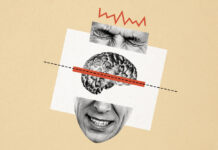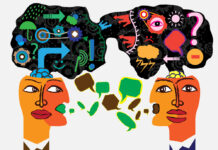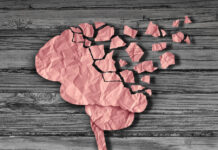Research News
National Study Ties LGBTQ+ Mental Health Disparities to Structural Oppression, Not Individual Pathology
As anti-LGBTQ+ laws multiply, so do mental health struggles and psychiatric diagnoses. Experts say structural violence is the real driver of distress.
Gardening Best Depression Treatment in Elderly—Antidepressants Worst
“Horticulture therapy,” CBT, and exercise all beat usual care for the elderly, while antidepressants led to worse outcomes than usual care.
Psychiatry Hinders the Relational Capacity of Those with Anomalous Experiences
Psychiatry fails to consider the intersubjective element of hallucinations and psychosis, further isolating those with anomalous experiences.
AI Technologies Likely to Entrench Exploitation of Service Users
Corporate profit and government control valued over service user consent and wellbeing, warns critical law professor
Improving Mental Health Care by Centering Peers in Open Dialogue
A new study calls for rethinking Open Dialogue practices by placing peer practitioners at the heart of therapeutic work.
Growing Up Poor Has Long-Term Mental Health Costs, Danish Study Finds
New research traces depressive symptoms, psychiatric diagnoses, and drug use across nearly two decades, linking them to socioeconomic status at age 15.
ECT Proponents Deny Harms as the Tide Begins to Shift
WHO and APA guidance now recognizes the risks of electroshock, but proponents continue to cherry-pick data and deny the harms.
Study Finds Increase in Psychiatric Framing of Emotions in Czech Journalism
Czech media increasingly frames ordinary emotions like sadness and shyness in clinical language, raising concerns about cultural psychiatrization.
From Subjects to Co-Researchers: A Lived Experience Model for Decolonizing Global Mental Health
What happens when people with lived experience of mental health conditions design, lead, and interpret their own studies? A new project from Ghana and Indonesia offers some answers.
Critical-Liberation Psychotherapy Model Promises Liberation, Not Adaptation
Psychologists propose a comprehensive new model for psychotherapy that integrates insights from critical, liberation, and decolonial psychologies.
Mental Health Providers Support Cultural Humility, But Fear Policy Pushback
A new study finds widespread support for cultural humility among mental health professionals, but many fear institutional backlash and lack the training to do it well.
New Study Reveals Psychological Toll of Stigma in Self-Injury Survivors
Researchers found that stigma related to self-injury is a persistent psychological burden, often silencing individuals and preventing them from seeking help.
Global Study Builds Consensus on User-Defined Mental Health Recovery
Mental health professionals unite around user-centered definitions of recovery—emphasizing agency, empowerment, and inclusion over symptom reduction.
“It’s Possible, and People Are Doing It”: Mental Health Crises Without Coercion
A new study explores how organizers and health professionals are creating non-carceral, community-based alternatives to psychiatric emergency care.
Stanford Researchers: AI Therapy Chatbots Encourage Delusions, Suicide, Stigma
“LLMs make dangerous statements, going against medical ethics to ‘do no harm,’ and there have already been deaths from use of commercially-available bots,” the researchers write.
Chronic Loneliness as the Existential Global Mental Health Concern
A team of researchers reviews 60 studies on chronic loneliness and finds that current psychiatric and public health models fail to capture its relational, developmental, and cultural dimensions.
Liberation Psychologist Asks if Hatred Has a Place in Progressive Politics
Liberation psychologist Nick Malherbe sees a place for psychologists in navigating rather than repressing political hatred inside progressive circles.
Students Need “Pockets of Humanity” in a Harmful System, Study Finds
A new study explores how “pockets of humanity” in school environments help students cope with systemic injustice and improve well-being.
Medications Aren’t the Measure of Success in Psychosis Treatment
Researchers in Norway find people with psychosis are most satisfied with services that help them work, study, and live in the community.
AI Medical Advice Biased Against Marginalized People
LLMs recommended mental health interventions “approximately six to seven times more often than clinically indicated” for LGBTQIA+ people, according to researchers.
The Future of Mental Health Is Community-Led, Researchers Argue
Researchers call for systemic investment in Community Health Workers, highlighting their role in transforming how—and for whom—mental health care works.
Mental Health and Justice for Indigenous Peoples in Bangladesh
Omar Faruk proposes a model that centers Indigenous voices in care, arguing that epistemic injustice underlies mental health disparities.
The Weaponization of Woundedness: Feminist Scholars Examine Trauma Talk
Once a clinical term used to describe extreme psychological distress, “trauma” has become a common feature of public life. It appears in therapy sessions,...
Why Psychiatry Trainees in France Want More Philosophy
A national survey of psychiatric professionals in France shows broad support for integrating philosophical concepts into clinical training and care.
Researchers: “We Do Not Suggest” Antipsychotics for Depression
Augmenting with antipsychotics was no better at reducing suicide than adding antidepressants, but led to increased risk of death from other causes.

































